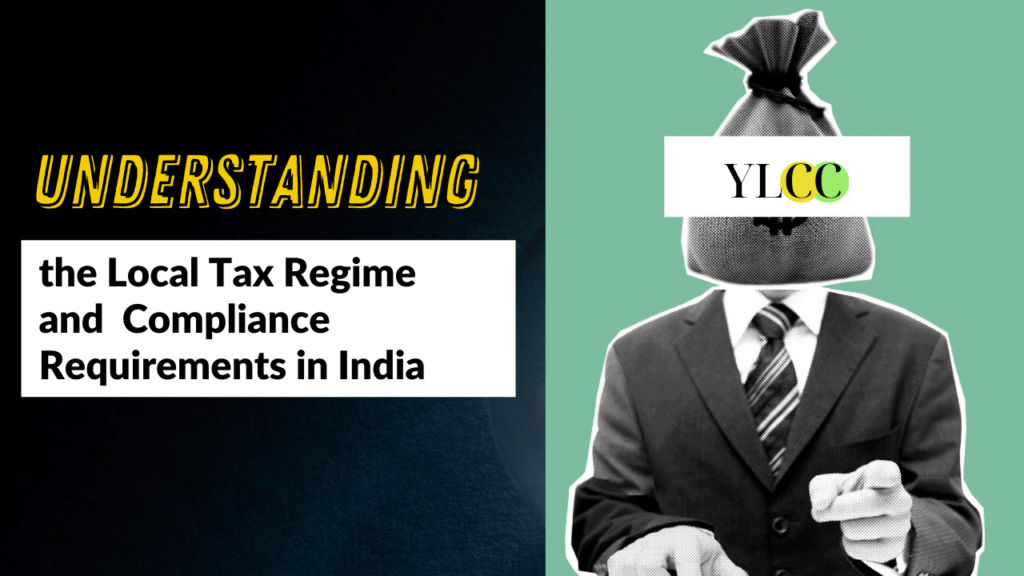
Don’t let the taxes weigh you down
Let’s get down to business in India! But before you jump in, it’s important to understand the local tax regime and compliance requirements to avoid any legal issues. Don’t worry, we’ve got you covered in this article. We’ll dive into the various taxes and compliance requirements that businesses need to know before operating in India.
Types of Taxes
Running a business in India? You need to know about the different types of taxes, including:
- Income Tax: Everyone has to pay taxes, even businesses. The amount depends on how much you earn.
- Goods and Services Tax (GST): Introduced in 2017, GST replaced a bunch of old taxes. It’s charged on goods and services, and the rate varies depending on what you’re selling.
- Corporate Tax: Companies operating in India pay corporate tax, which varies based on their size and income.
- Customs Duty: If you’re importing goods into India, you’ll need to pay customs duty. The amount depends on what you’re importing.
Staying Compliant in India: The Nitty-Gritty of Compliance Requirements
Are you planning to set up a business in India? It’s important to be aware of the various compliance requirements you need to follow to stay on the right side of the law. Here are some of the compliance requirements you need to keep in mind:
- Tax Registration: You need to obtain a tax registration number, like a Permanent Account Number (PAN) or a Goods and Services Tax Identification Number (GSTIN), based on the type of tax you’re required to pay.
- Filing Tax Returns: Regularly filing tax returns is a must. The frequency of filing depends on the type of tax and the business’s turnover.
- Bookkeeping and Accounting: To maintain proper records, businesses need to keep track of their finances and prepare financial statements regularly.
- Labour Law Compliance: Complying with labour laws, such as the Minimum Wages Act, the Employees’ Provident Fund Act, and the Employees’ State Insurance Act, is mandatory.
Penalties for Non-Compliance
Non-compliance with tax and regulatory requirements can result in hefty penalties and fines. Businesses may also face legal action, which can have a negative impact on their reputation and financial stability.
Taxes and Tax-Saving Strategies for MSMEs in India
MSMEs (Micro, Small, and Medium Enterprises) are crucial contributors to the Indian economy. However, to ensure compliance with Indian tax laws and regulations, MSMEs need to be aware of the following key taxes:
- GST (Goods and Services Tax): GST is levied on the sale of goods and services in India. Businesses with an annual turnover of over Rs. 40 lakhs (for goods) or Rs. 20 lakhs (for services) must register for GST.
- Income tax: MSMEs must pay income tax on their profits. Small businesses with a turnover of up to Rs. 2.5 crores can pay taxes at a lower rate through the presumptive taxation scheme.
- TDS (Tax Deducted at Source): MSMEs must deduct TDS from payments made to vendors, contractors, and employees and deposit it with the government.
- Professional tax: Some Indian states levy professional tax on businesses based on the number of employees and their salaries.
- Excise duty: MSMEs engaged in manufacturing may be required to pay excise duty on goods produced and sold.
To reduce their tax liability, MSMEs can use the following tax-saving provisions:
- Take advantage of deductions and exemptions available under the income tax laws, such as Section 80C.
- Use the presumptive taxation scheme to pay taxes at a lower rate.
- Maintain records and track expenses to claim deductions and reduce tax liability.
- Plan investments and expenses in a tax-efficient manner.
- Consult tax professionals and experts for compliance with tax laws and take advantage of tax-saving opportunities.
Other Tax-Saving Strategies for MSMEs in India
Apart from the above, MSMEs can also use the following strategies to save taxes:
- Write off preliminary expenses: Under Section 35D of the Income Tax Act, MSMEs can write off initial expenses as a deduction in five equal installments over five years.
- Claim deductions on business expenses: MSMEs can claim deductions on expenses incurred while running their businesses and reduce their tax burden.
- Additional depreciation: MSMEs can claim an additional 20% depreciation on new machinery under Section 35AD during the first year of its operation.
- Home office deductions: MSMEs can claim deductions on expenses related to their home office under Section 32 for depreciation and Section 37 for other expenses.
- Avoid penalty for late filing: MSMEs should submit their tax returns before the due date to avoid penalties and maximize their tax benefits.
- Make a retirement plan: MSME owners should plan for their retirement by setting aside some income regularly in a retirement account or creating a specific retirement plan to reduce their tax burden and secure their future.
By following these tax-saving strategies, MSMEs can ensure compliance with Indian tax laws while reducing their tax liability and planning for their future.
Conclusion
Understanding the local tax regime and compliance requirements is essential for any startup operating in India. Businesses need to be aware of the various taxes they are liable to pay and comply with the regulations to avoid legal issues. As the Indian government continues to introduce new tax and regulatory measures, it is important for businesses to stay up to date with the latest developments to ensure compliance.
This article has been written by Team YLCC. For any other queries, reach out to us at: queries.ylcc@gmail.com






